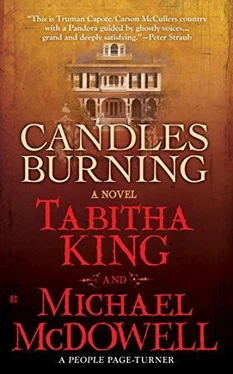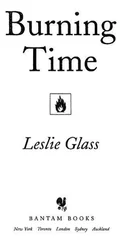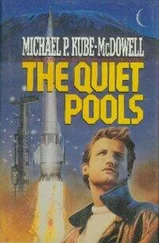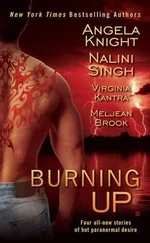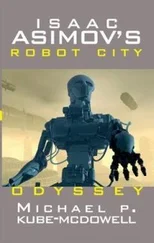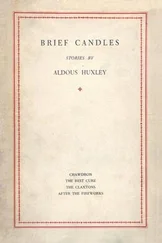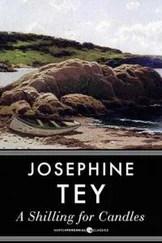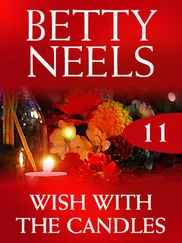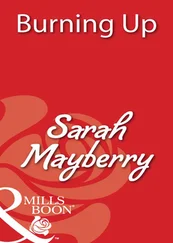Tabitha King and Michael McDowell
CANDLES BURNING
This novel is a collaboration. Michael McDowell began it a decade ago. He died before he could finish it. His editor, Susan Allison, approached me through my agent, Ralph Vicinanza, with the idea of completing it. I was immediately intrigued. The manuscript and the notes that Michael left were incomplete, but he had carried the story forward several hundred pages. The story as I completed it is not the story that Michael set out to tell, or the one that he would have told, had he lived to finish it. Every novelist knows the difference. This is the story that I drew from Michael’s manuscript.
I hope that it would have pleased and amused him, and that it pleases Laurence Senelick, Michael’s longtime companion, and Michael’s sister, Ann, and brother, James, who survive him. Laurence has given me generous support and approval for this project and provided notes and fragments of the original manuscript that had gone astray. He has my deep gratitude.
Thanks to Julie Ann Eugley, Marsha DeFillippo, Barbara Ann McIntyre, Margaret Morehouse, Marcella Spruce, and Diane Ackerly, providers of logistical support, research, scheduling, and lunches; to Dave Higgins, who maintains our Macs. As always, to my first readers, Nora K., Kelly B., Owen, Joey, Steve, Sarah Jane, M., my oldest sister, and M., my youngest sister. Thanks to my family also, for the humor with which they have tolerated my antisocial prickliness when I am working. Thanks to Douglas Winter, who knows for what, and shrieks to Lyn.
Thanks to Ralph and to Susan.
But most of all, thank you, Michael. It was fun. And I miss you.
MY father died unpleasantly.
Mama put it that way. “My husband died,” she used to say, letting her voice catch before concluding, “unpleasantly.”
Stepping on a wasp barefoot—that’s unpleasant. A mouthful of sour milk—that’s unpleasant. What happened to Daddy was no mere unpleasance. It was murder. And not a cozy one. Not the butler in the library with the revolver, not a bloodless, painless, game of clues with a polite high-class suicide to avoid the common gallows at the end.
I was seven years old when Daddy died. I did not entirely understand the nature of Daddy’s death nor did I accept its finality. His death was an event that had happened to me, and to Mama, and to my brother, Ford; the realization that it had happened to Daddy came only with the passage of time. The pictures of the bloody footlocker that made the cover of what turned out to be the last issue of True Sex Crimes, the stories that appeared in that grimy little scandal sheet and its trashy ilk— Savage Real Crimes, Twentieth-Century Grue —were successfully kept from my eyes until much later.
Recently I have read or reread all the newspaper and periodical clippings and the popular psychological forensics farragoes, such as Dr. Meyers’s 1975 publication, Sexual Pathology and the Homicidal Impulse, which included a chapter entitled “Footlocker, Broomstick and Cleaver.” The unspeakably cruel details of Daddy’s death quickly defeated the cynical attitude with which I had armored myself. Mama’s once ludicrous euphemism now lodges sharp as a fishbone in my throat.
The women who actually murdered Daddy were caught. They were tried. They were judged guilty and sentenced to die in the electric chair. Even in Louisiana in 1958, it was rare for women to be executed but what they did to my father was, in the opinion of the judge, “an unimaginably heinous atrocity against nature.”
But the two guilty women did not die by electrocution.
Judy DeLucca was murdered in the prison laundry—slit open from throat to crotch with a razor blade embedded in the handle of a toothbrush. When Janice Hicks, housed in a different wing of the same prison in Baton Rouge, heard of her friend’s death, she began to gasp frantically. She was dead before a doctor could be summoned. The autopsy showed that her lungs were full of water.
Seawater.
MY name is Calley Dakin.
I was christened Calliope Carroll Dakin. Every time I ever asked Mama why she named me Calliope, she spun a new and blatant lie, from the lackadaisical to the sadistic: Calliope was the name of the best friend in college who had proved to be treacherous, or of the childhood doll that had always had an odd smell, or the forbidden creek where a naughty child was bitten by a water moccasin and when the body was recovered, the snake was inside the child’s mouth.
I discovered for myself that a calliope is a nineteenth-century steam organ associated with circuses, and that Calliope is the classical Greek muse of epic poetry. At my first opportunity, I informed Mama of these facts.
“I had no idea,” said Mama, in a flat sarcastic tone. “If only I had had an inkling.”
From my earliest babyhood, Daddy took me to the circus as often as one showed up within reasonable reach so that I came to know the range of sounds of the calliope. No one could call it a delicate instrument but I did admire its great rowdy wind. Mama never went with us. She had an allergy to hokum, she said. It was some years before I was disabused of the notion that hokum was some kind of plant like ragweed that provoked people to sneeze and swell up.
Mama was born Roberta Ann Carroll. The Carrolls were a very old Alabama family, very high in Alabama, as high as you could get without actually being the current governor or so rich that people in other states had heard of you. Mama never let me forget that I was a Carroll, or that I was failing to measure up to being one.
But my last name was Dakin.
The Dakins were very low in Alabama, as low as you could get without being colored. The Dakins had never amounted to anything, Mama always said. They were not quality. Without history, without standing, they might as well have hailed from the backside-of-the-moon.
The only things they did have were hillbilly accents and boys. There were no Dakin girls, just family after family of Mama Dakin, Daddy Dakin, and four, five, six, or in the case of Daddy’s mama and daddy, seven little boy Dakins.
So why did Roberta Carroll marry Joe Cane Dakin?
Because, unlike all the other Dakins in Alabama, Daddy was rich.
Though his name actually was Joe, Mama called him Joseph. She asserted that it was typically ignorant of the Dakins to put a nickname on a birth certificate. Daddy’s brothers were Jimmy Cane Dakin, Timmy Cane Dakin, Tommy Cane Dakin, Lonny Cane Dakin, Dickie Cane Dakin, and Billy Cane Dakin. Mama claimed that the middle name was because they were all born in a cane field.
Daddy told me that it was his mama’s lesson to them all, so they would not forget the stain of Cain upon the human race. The misspelling was of no import. The idea of spelling as a strict science never penetrated very deeply among the barely literate like Daddy’s mama, or the illiterate like his daddy. Indeed, it is an idea that begins now to seem a quaint affectation. I have seen the signature of Daddy’s father, on county documents, signed variously Cyrus, Cyris, Syris, and even Sires Dakin. He had the Dakin down cold; it was his Christian name that was a speculation every time. Daddy’s mama signed the family Bible in neat printing: Burmah Moses. Daddy’s mama was herself an orphan, raised in an orphanage operated by The Daughters of the Pharaoh. They were a peculiar, and now extinct, offshoot of the Eastern Star, but while they existed, they sent all their charges out into the world bearing the last name of Moses. No doubt her orphan soul, like the too-large shoes she was given to wear away from the orphanage, could hardly avoid picking up the odd pebble of a religious enthusiasm.
Читать дальше
